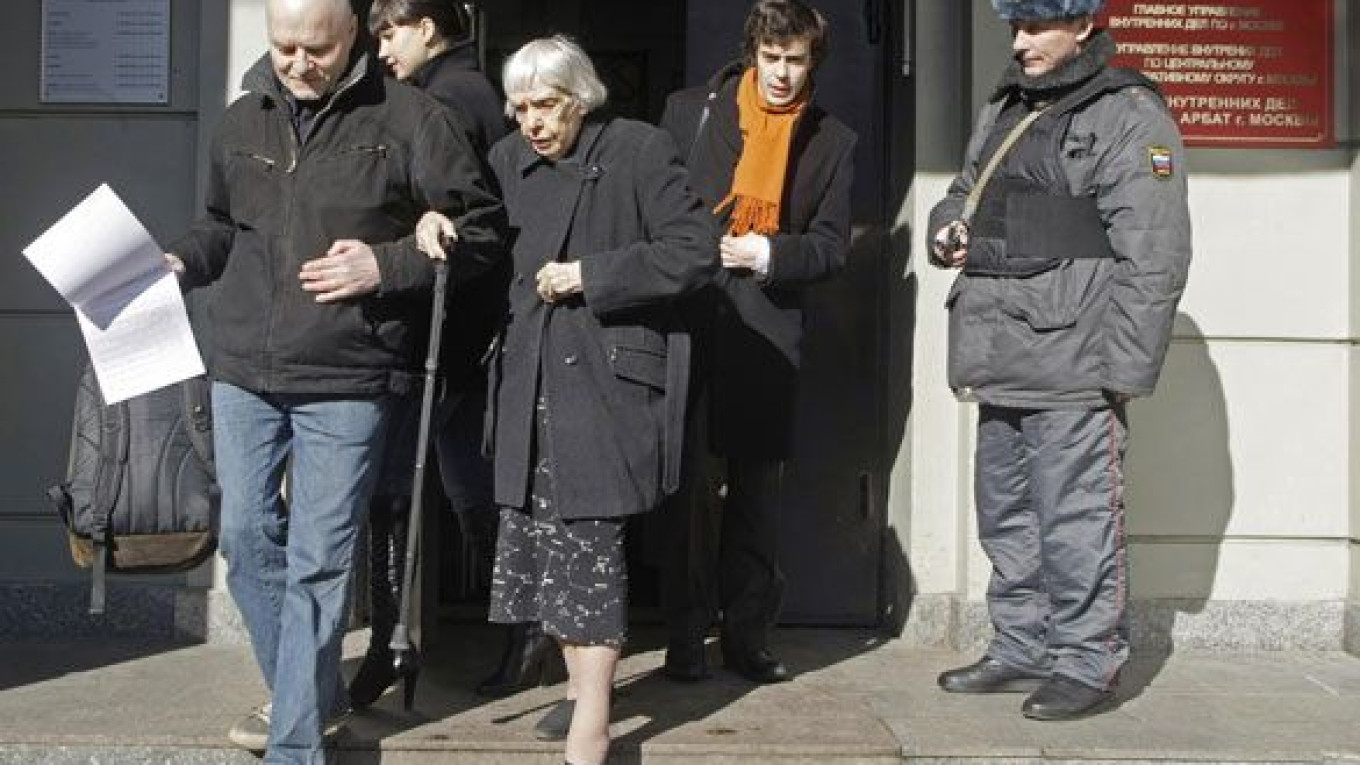Veteran rights activist Lyudmila Alexeyeva went to a Moscow police station on Thursday to hand out flyers urging officers to attend an opposition rally calling for police reform. Unusually, the police not only let her in but they allowed her to leave.
Alexeyeva, 83, has suffered regular police harassment for her activities to raise awareness of rights abuses and repression in Russia. She was among the activists arrested at a New Year’s Eve demonstration defending the constitutional right to assembly.
Alexei Platonov, head of the Arbat precinct, welcomed the elderly activist into his office and allowed her to distribute leaflets to his subordinates about the protest, which is planned for Saturday.
“It was very surprising,” Alexeyeva said on the steps of the police station afterward.
“I don’t know if this will change their attitude to police reform,” she said, referring to the handful of officers she persuaded to take a pamphlet. “But they are no more stupid than we are and understand perfectly well how badly reform is needed.”
Public confidence in the country's police force has collapsed. Russian media in recent months have been awash in reports of police shooting sprees, deadly road accidents caused by drunken officers and silenced whistleblowers.
In response, President Dmitry Medvedev, fired several senior police officials last month and said he would slash thousands of Interior Ministry jobs. In an acknowledgment of systemic police corruption, he said the 15,000 cases logged last year were “just the tip of the iceberg.”
Authorities continue to show little tolerance for public protest. Last weekend, plans by the opposition "We" youth group to protest outside the Interior Ministry headquarters were thwarted when police detained all the organizers and cordoned off the square.
Alexeyeva, who walks with the aid of a cane, wasted no time upon arriving at the station, hobbling up to the young policeman guarding the entrance, and saying the reforms “concern you no less than they concern us.”
Alexeyeva, head of the Moscow Helsinki Group, collected the European Union’s top human rights award, the Sakharov Prize, in December.
A Message from The Moscow Times:
Dear readers,
We are facing unprecedented challenges. Russia's Prosecutor General's Office has designated The Moscow Times as an "undesirable" organization, criminalizing our work and putting our staff at risk of prosecution. This follows our earlier unjust labeling as a "foreign agent."
These actions are direct attempts to silence independent journalism in Russia. The authorities claim our work "discredits the decisions of the Russian leadership." We see things differently: we strive to provide accurate, unbiased reporting on Russia.
We, the journalists of The Moscow Times, refuse to be silenced. But to continue our work, we need your help.
Your support, no matter how small, makes a world of difference. If you can, please support us monthly starting from just $2. It's quick to set up, and every contribution makes a significant impact.
By supporting The Moscow Times, you're defending open, independent journalism in the face of repression. Thank you for standing with us.
Remind me later.


